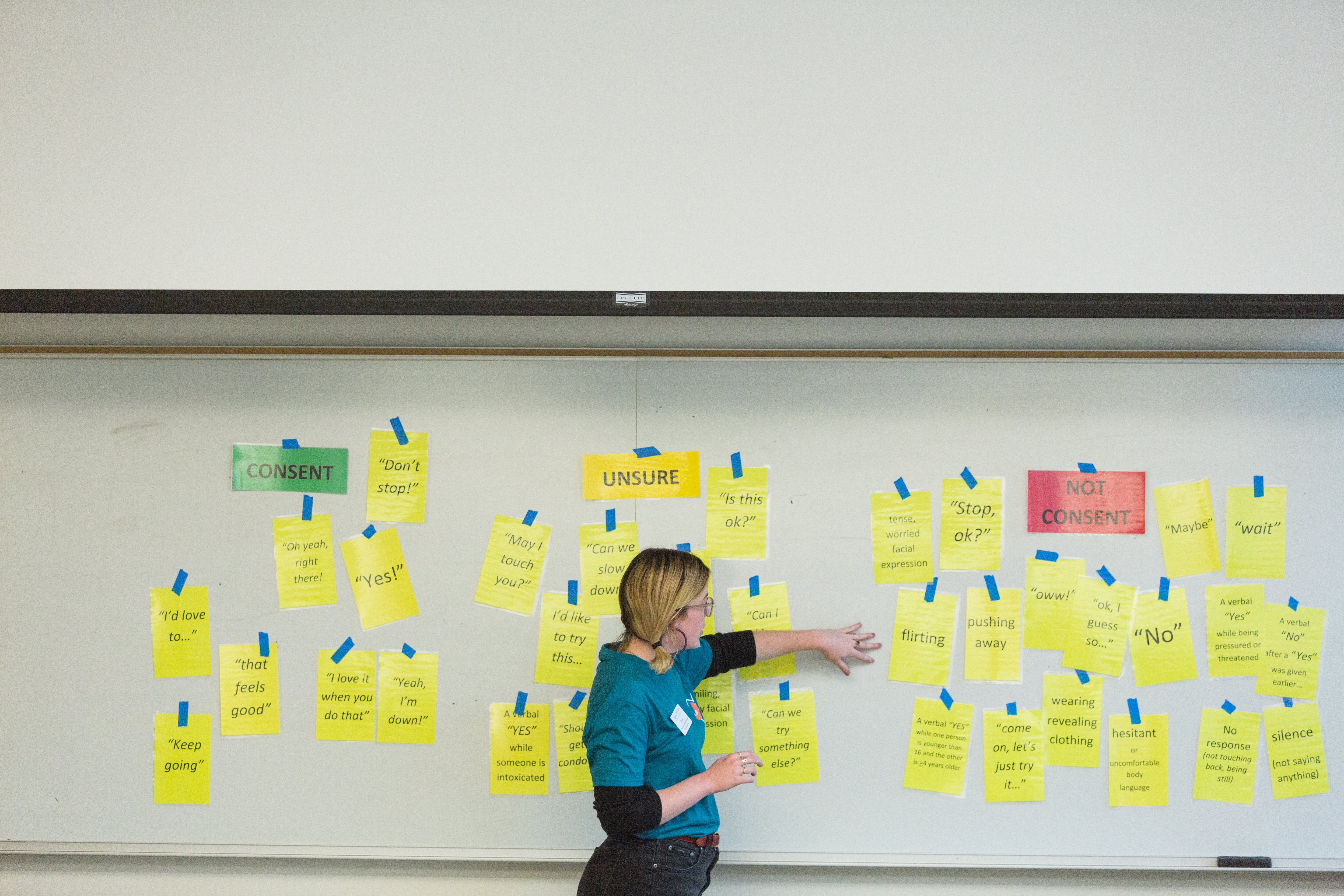When WWU health educator Tracy Dahlstedt-Rienstra talks to Western students about the importance of consent in sexual activity, she’ll often refer to a go-to college staple: pizza.
“When you’re going to share a pizza with someone for the first time, the first thing you do is talk about it—what you like, what they want—and you figure out what kind of pizza you can share that you’re both going to enjoy,” says Dahlstedt-Rienstra, who oversees Western’s Peer Sexual Health Educators, students trained to provide programs on a variety of sexual health topics.
While sexual health programs in college have traditionally focused on STD and pregnancy prevention, the emphasis on consent is relatively new and reflects more recent developments in the national discussion about sexual assault, says Dahlstedt-Rienstra, ’98, B.S., community health.
“Some of our societal notions of certain people being entitled to take what they want from other people, particularly when it comes to sex—I think that those ideas are being challenged much more openly,” she says.
Western’s Peer Sexual Health Educators aim to provide the information that students need to “experience their sexuality and sexual relationships in ways that are empowered, healthy, positive and pleasurable.” In addition to the safe-sex workshop “Cookies and Condoms,” the “Hot and Ready” presentation refers to pizza as it explores sexual attraction and desire, personal boundaries, and tips for navigating issues of consent and pleasure with inti-mate partners.
While students may be initially motivated to attend for the free pizza, the programs have consistently been well-attended and well-received, says Dahlstedt-Rienstra. Students comment on how much they appreciate learning specific ways to com-municate about consent with a partner, and especially the frank discussion about the role that alcohol can play in making that communication more complicated.
“It’s important to acknowledge that sex happens when people have been drinking, and to provide some guidance on how to make sure it’s consensual and safe,” Dahlstedt-Rienstra says.
Peer health educators also emphasize that sex with someone who is incapacitated by alcohol or other drugs is rape, and that using alcohol or drugs to make someone more vulnerable and exploit them is unethical and unacceptable.
“People have a right to autonomy over their own bodies and choices,” says Emily Ehlers, a sophomore from Portland and one of 11 trained student volunteers in the program. “One doesn’t have to feel pressured into any sexual activity and that should never be a part of sexual activity.
“Saying yes to one thing doesn’t mean you’re saying yes to a bunch of other things, or saying yes one time doesn’t mean there’s a yes for another time.”
Ehlers, a double-major in secondary education and women, gender and sexuality studies, says more teaching about consent must be done both at the college level and much earlier—even in preschool.
“You can teach kids to know that their bodies are theirs—how to ask for a hug or for a high-five (instead)—and to under-stand other people’s personal boundaries,” Ehlers says.
Young children receive a lot of mixed messages when it comes to consent and are often pressured to let adults hug and kiss, says Dahlstedt-Rienstra.
“And children get messages over and over that it is more important to be polite and not make an adult feel embarrassed, than it is to be able to declare a boundary and expect for that to be respected,” she says. “Parents and families play a huge role in how kids learn about consent, and we need to get more intentional about what we’re really teaching.”
